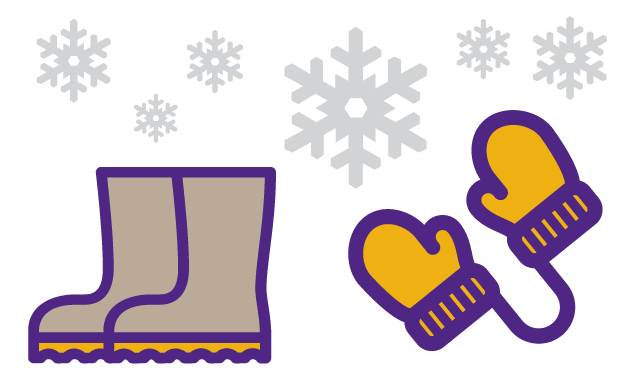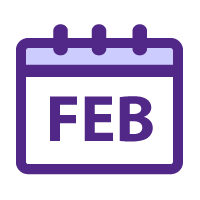Lori Goodson, Editor
Mary Hammel, Technical Editor
Category: January 2021
In the Classroom: Trenton Smedley

Name: Trenton Smedley
Location: Olathe Public Schools, USD 233, Olathe, KS
Class/content area taught: Agriculture
What are you most excited about with your new career? Developing a new agricultural education/CTE program.
What you enjoy most about teaching: Showing students something they’ve never seen before or helping them make connections between agriculture and things they see and/or use every day!
In what ways has your school/district supported you? I have a building-level mentor to help me navigate through this school year. I also work with an instructional coach weekly to help me identify ways to engage students and assess their progress. The school district has also allowed me to participate in professional development with the Kansas Association of Agricultural Educators.
What are some specific things you believe KSU especially helped prepare you for your new career? Identifying and incorporating lesson essentials—review/preview/bell work, content delivery, student work/processing, assessment, closure, etc. In the College of Agriculture, I was given several opportunities to see different types of agriculture and how production is connected to other enterprises that eventually make commodities into a useful product, which has enabled me to think about how I can give my students similar experiences.
Suggestions/encouragement for new teachers: We all want to be prepared, organized and have lessons planned for the next two weeks. Don’t be afraid to leave at 3:30 (or whenever your contract time ends) as long as you are ready for the next day. Spending multiple hours every evening in your classroom won’t make you a better teacher. Some days you need to get out to clear your mind; don’t burn yourself out. It’s more important to be there for your students right now than to worry about what is happening next.
Bonus question, thanks to the Pandemic: COVID-19—How has the Pandemic shaped your classroom—the environment, safety precautions, etc.? How has it affected you as a new teacher? We have been in a remote learning environment more than we have been in-person. Videos have been helpful in demonstrating lab-type experiments. As an agriculture teacher, I have found several ways to get students outside and away from their computer if even for a few minutes. As a first-year teacher, I think I have an advantage over the experienced teachers. Everything I plan for this school year is specifically for the environment we are learning in. I am not adapting anything I’ve done before or comparing student progress to previous years. I think it makes it easier for me to approach teaching and learning with a growth mindset. If students know more in December than they did in August, it’s a win!
Let it snow! You’re ready for it!
 It’s official! Winter has arrived and will be sticking around for several more weeks! During those times when we find ourselves teaching remotely, some of the annoyances of winter just don’t matter…scraping off the windshield, slipping across the parking lot, etc. But…if you’re face to face, be prepared for those annoying reminders of winter!
It’s official! Winter has arrived and will be sticking around for several more weeks! During those times when we find ourselves teaching remotely, some of the annoyances of winter just don’t matter…scraping off the windshield, slipping across the parking lot, etc. But…if you’re face to face, be prepared for those annoying reminders of winter!
Here are a few suggestions to keep you warm, happy, and teaching through the winter months:
- It’s cold and flu season, so watch out for those germs! Use disinfectants on door knobs, often-used items around the room, and anti-bacterial lotion for your hands. Keep boxes of facial tissues on hand, as students will go through them quickly. (It might be a good time to request a few boxes from parents.)
- Messy weather also brings messy items into your classroom. You’ll have snow and slush tracked in, so be ready for spur-of-the-moment clean ups. Throw a few old towels and a roll of paper towels into your storage closet.
- Cold weather also means more winter coats, hats, mittens, and other gear to keep track of and store through the day, so develop a system that allows easy access for recess or at the end of the day, yet keeps them out of your day during class time. (Need some ideas on that? Check with your hallway neighbor to see what he or she does.)
- Allow extra time for bundling up younger students! Parents and guardians will appreciate that you spent that extra time making sure their children were protected as they head to a school bus or walk home. (For older students, just remind them to WEAR their coats outside.)
- For your own well being, be sure to layer your clothing, since schools often can shift from too cold to too warm on a day-to-day basis. Store an extra sweater or jacket in a closet just in case.
- Allow yourself extra time to get to your school. Sacrificing a few extra minutes of a morning can save you time by helping you avoid a fender-bender…and a visit with the police…and a visit with your insurance agent…well, you get the idea.
Once you get your winter system in place, you can fine-tune it and slush through whatever winter has to offer!
COE faculty, administrators share some Covid-19 suggestions
 Tips to be successful in this environment
Tips to be successful in this environment
Dean Debbie Mercer: Take care of yourself! Self-care is not selfish, it is necessary. I frequently say there is a reason we are told to put our own face mask on first when on an airplane. If we don’t have oxygen, we cannot help others. You must be rested, hydrated, and nourished to be your very best for your students. Take time to ensure this happens! Buy a great water bottle, plan healthy lunches, go on walks, take time to do things you enjoy. Each time you do, you replenish your reserves so you can provide what your students need.
Assistant Dean Todd Goodson: Students carry with them all of the stressors in our cultures and our communities. It might be a contentious political climate. It might be a public health emergency, or it might be something we haven’t imagined yet. Students absorb stress from their environments and it follows them into our classrooms. The same could be said for us. Just because we are teachers, we are not immune from toxic influences of the world. We have to attend to ourselves first. We have to have our own heads in a good place so we can assist our students as they deal with the baggage they bring to school.
Dr. Vicki Sherbert: Be flexible! Whether the shift you’re making is something small like shortening or extending a lesson or is a bigger pivot like moving from in-person to remote learning, it can be an opportunity to develop resiliency. Extend grace to yourselves, your students, and your colleagues. This resource is a Padlet compiling 30 conversations on teaching and learning with Kelly Gallagher and Penny Kittle. In each recording, they share honest insights on the struggles (and even a few) unanticipated positives experienced while teaching during the pandemic. https://padlet.com/pennykittle/conversationsWkellygallagher They invited guests to share their experiences and offer resources to teachers at all levels of experience.
Dr. Lori Levin: You know me, always thinking about phonemic awareness and phonics instruction that does not include any worksheets. Here is a fabulous resource to use for remote instruction of phonics and phonology (even math, spelling, science, etc.). It is called Whiteboard.fi and it allows you to instantly create a class and share a code with your students who will get a powerful whiteboard on their screen on any device. They can write, draw, type, do math, and add images, and you can see their screens and interact with them in real time. Imagine saying a word like “bed” and asking them to write the letter for the sound they hear in the middle, or asking them to add a picture of something that starts with the /b/ sound! The possibilities are endless and it is FREE.
Dean Debbie Mercer: You are an EdCat! You are Powered by Purpose! You are the best of the best. You are ready for your own classroom and you are ready for your students! Stay in touch with your professors and fellow EdCats. They are a network of support for you.
Assistant Dean Todd Goodson: We hope you will teach for many years, but you will only have one first year of teaching. In the years ahead, things that seem very serious today will be routine for you. You are building a foundation to last a career. Be deliberate. Be careful. Have fun.
Dr. Vicki Sherbert: You are doing good and important things for students. Especially now, you are building relationships with students that will make an impact on them throughout their journeys. You can communicate to them that you are the “lead learner” in the classroom and that you are learning alongside them. Your students are learning critical skills that extend far beyond traditional classroom learning.
Dean Debbie Mercer: What an opportunity you have! YOU will change education. You have learned in an environment we could not have imagined a year ago. Yet, you did and you thrived. Take the methods and practices that were a positive impact on you during this time and implement those with your students. You are charting the pedagogy and learning opportunities of the future!
Dr. Vicki Sherbert: Extend grace to yourself and to others. No one has done this before!
Check in with other EdCATS

As you move through the school year, don’t miss a thing! Be a part of EdCATS!
We want to help beginning and early career teachers like you thrive in your career! Check out @ksuedcats for teaching tips and to stay in touch with the COE! Check out the website at coe.k-state.edu/forever-edcats.
Connect with your new BFFs: Custodians and office assistants
In case you haven’t made the connections yet, two of your new best friends should be a custodian and an office assistant. Rumor has it those individuals can save you a mountain of trouble by helping you figure things out in your new school. With bad weather moving in, all sorts of spring activities that will be bubbling up, and other happenings, they can provide advice to help you manage all of these things.
Rumor has it a custodian once saved a new teacher when she found out her room was going to be used for a music festival. The custodian not only gave the teacher a heads up about it, but walked to her room and helped her arrange her room to avoid any issues with equipment, etc. Not naming names here, but I truly appreciated it!
Often they’ve been in the building for some time and know the system, so use…and appreciate…those resources.
Email your COE family!
What’s up?
Why don’t you send us a photo of you at work in your classroom! Or, do you have a question about classroom procedures? A suggestion for a topic we should address in Before the Bell? Want to add your name to our mailing list? Or provide a different email for our list? At the very least, just email and say hi!
And thanks to all of those who have emailed! We love the updates!
Early-career teachers, feel free to jump in and offer suggestions to those who are following your career choice!
We’d love to hear from you, so please email us at lagoodson@k-state.edu.
Go, COE Cats!
Faculty offer resources to inspire you
 Here are some books and other resources some of your former professors offer as ways to inspire you in your new career of teaching:
Here are some books and other resources some of your former professors offer as ways to inspire you in your new career of teaching:
Dr. Brad Burenheide (Secondary Social Studies) —
- First Days of School by Harry Wong and Rosemary Wong
- Meet Me in the Middle by Rick Wormeli
- Classroom Instruction That Works: Research-based Strategies for Increasing Student Achievement by Ceri B. Dean, Elizabeth Ross Hubbell, Howard Pitler, and BJ Stone.
Dr. Todd Goodson (Secondary English, Speech/Theatre, Journalism) —“Let’s try three great school movies:
- Dead Poets Society (1989)
- Mr. Holland’s Opus (1996), and
- Stand and Deliver (1988)
- For extra credit, try Goodbye, Mr. Chips (1939).
- For comic relief at the end of the school year, try Teachers (1984).
Dr. Lori Levin (Literacy) —
- “Bookmark the ALA website and keep current on the latest award winners – http://www.ala.org/alsc/2017-alsc-book-media-award-winners
- Visit NEA for a list of must reads for new teachers: http://www.nea.org/home/34033.htm
- Great Websites for Kids from the American Library Association – http://gws.ala.org/
Ms. Cyndi Kuhn (Technology) —
- Teach like a Pirate by David Burgess
- Ditch that Textbook by Matt Miller
- Good to Great by Jim Collins
Dr. Sherri Martinie (Secondary Math) —
- The Courage to Teach by Parker Palmer
- Teaching with Love and Logic by Jim Fay and David Funk
- Mindset: The New Psychology of Success by Carol Dweck
Dr. Tom Vontz (Elementary Social Studies) —
Dr. Vicki Sherbert (Secondary English/Language Arts, Speech/Theatre, Journalism) —
- Kittle, P. (2013). Book love: Developing depth, stamina, and passion in adolescent readers. Portsmouth, NH: Heinemann.
- National Writing Project & Nagin, C. (2006). Because writing matters: Improving student writing in our schools. San Francisco, CA: Josey-Bass.
- Graves, D. (2006). A sea of faces: The importance of knowing your students. Portsmouth, NH: Heinemann.
- Ripple Maker by Davis Laughlin
- In Defense of Read-Aloud: Sustaining Best Practice by Steven Layne
Dr. Phillip Payne (Music Education) —
- First Days of School by Harry Wong or Tools for Teaching by Fred Jones
- The Journey from Music Student to Teacher by Michael Raiber and David Teachout
- Alternative Approaches to Music Education by Ann Clements
Coming up next month
 Look at the calendar! You’re shifting into second semester and life is good, right? Well, just in case you need a little cheering on–and maybe a smile or two, we’re going to provide the following stories in our next issue:
Look at the calendar! You’re shifting into second semester and life is good, right? Well, just in case you need a little cheering on–and maybe a smile or two, we’re going to provide the following stories in our next issue:
- Assessments—how you AND your students can succeed!
- Silly first-year teacher mistakes your professors made.
- Ideas for collaboration with other secondary teachers.
